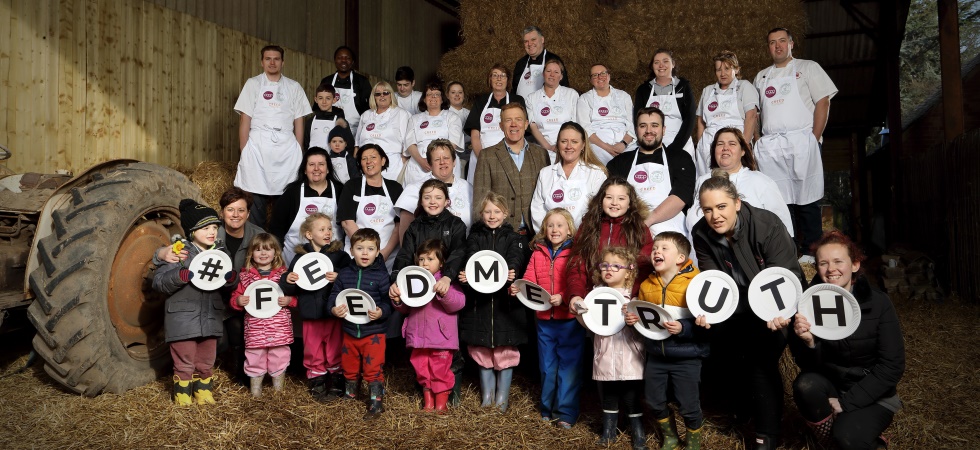TV Presenter and farmer Adam Henson is launching #FeedMeTruth, a national campaign to inform children of where the food on their plate comes from.
Henson, best known from Countryfile, hopes to encourage every nursery and school to commit to making their food supply chain transparent, thereby creating a generational shift in how the nation engages with and values food provenance.
The campaign will offer for nurseries, and free of charge for state primary and secondary schools, a way to show the journey of every plate of food and drive the change through supply chains.
The service and technology is being provided by Happerley, a not for profit organisation founded by farmers to validate the provenance of food ingredients and empower consumers to know where their food is from.
Co-operative Childcare, a national nursery group, has already signed up as the lead educational group, who have had to change their entire food supply chain to enable the transparency. Co-operative Childcare is committed to children’s health and wellbeing and part of this programme is about teaching children where their food comes from and about making healthy choices.
Henson said: “The appreciation and understanding of food starts with children simply knowing how and where the ingredients on their plate were produced, but they don’t. They have no idea. Every school dinner has a story to tell – a journey. It leaves a footprint. We need every child to explore it and be inspired and learn from it.”
Happerley founder, farmer Matthew Rymer, explains: ““The food industry remains one of the least transparent and we are not told the origins of most of the ingredients in our food. Children are particularly susceptible to buying into brands and clever marketing because they do not know or understand better.
“By working through the food chain to deliver the full story of the ingredients that make their school dinners, our hope is we can create a seismic change in understanding for the future that impacts positively on their health and nutrition, the environment and sustainable food production.”









